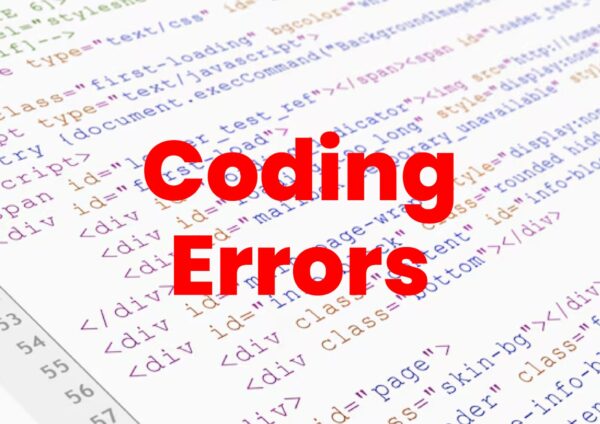Have you ever found yourself scratching your head, wondering why your code isn’t working as expected? Don’t worry; you’re not alone. Even the most seasoned programmers make mistakes from time to time. In this article, we’ll explore some of the most common coding mistakes and provide you with practical tips on how to fix them. So, let’s dive in and unravel the mysteries of coding errors together!

3. Not Testing Your Code
Testing is an essential part of the coding process, yet many developers neglect it. Writing code without testing it is like driving a car without brakes – sooner or later, you’re going to crash. Always test your code thoroughly before deploying it to production to catch any bugs or errors early on.
4. Overcomplicating Solutions
Sometimes, the simplest solution is the best solution. Overcomplicating your code with unnecessary bells and whistles can make it harder to understand and maintain. Keep your code simple and concise whenever possible to make debugging and troubleshooting easier.
5. Copy-Pasting Code Blindly
It’s tempting to copy and paste code from Stack Overflow or other online sources without fully understanding how it works. However, blindly copying code can introduce subtle bugs and errors into your project. Always take the time to understand the code you’re using and make sure it fits your specific needs.
6. Not Commenting Your Code
Good code should be self-explanatory, but that doesn’t mean you should skimp on comments. Comments are invaluable for explaining the purpose and functionality of your code to others (and your future self!). Take the time to comment on your code properly to make it easier to understand and maintain.
7. Failing to Back Up Your Work
Imagine spending hours (or even days) writing code, only to lose it all due to a hardware failure or accidental deletion. It’s every developer’s worst nightmare. Always remember to back up your work regularly to avoid losing valuable code and precious time.
8. Not Taking Breaks
Programming can be mentally taxing, and staring at a screen for hours on end can lead to burnout and decreased productivity. Don’t forget to take regular breaks to rest and recharge. Your brain will thank you, and you’ll come back to your code with fresh eyes and renewed energy.
9. Reinventing the Wheel
There’s no shame in using existing libraries or frameworks to solve common problems. Reinventing the wheel may seem noble, but it’s often unnecessary and time-consuming. Leverage existing tools and resources whenever possible to speed up development and reduce the risk of errors.
10. Giving Up Too Easily
Last but not least, don’t give up at the first sign of trouble. Coding can be frustrating, and you’re bound to encounter obstacles along the way. Instead of throwing in the towel, persevere and keep trying. Every mistake is an opportunity to learn and grow as a programmer.
Conclusion
In conclusion, making mistakes is an inevitable part of the coding journey. However, by recognizing common pitfalls and learning how to fix them, you can become a more confident and proficient programmer. So, the next time you find yourself saying “Oops, I did it again,” don’t panic. Take a deep breath, roll up your sleeves, and tackle the problem head-on. Happy coding!
